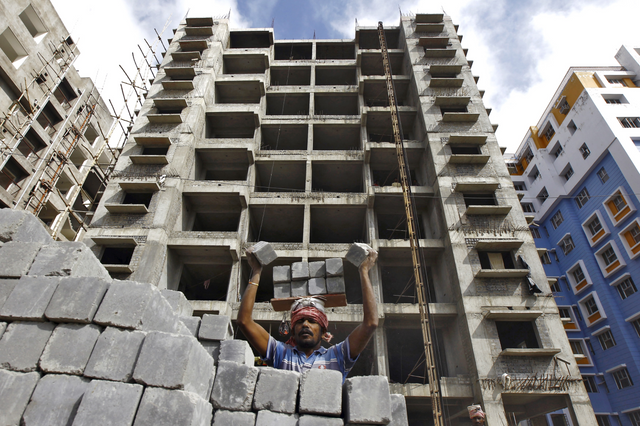Infrastructure decisions made by anything other than willingness to pay.
The quality of infrastructure in a neighborhood influences the price that people are willing to pay to live in that neighborhood. There is an optimal quantity of low quality infrastructure neighborhoods. Some people are willing to live in a lower quality infrastructure neighborhood in order to afford other things, given their income constraints.
When infrastructure fails, it is more likely to fail in neighborhoods with lower cost housing that is occupied by relatively lower income families.
Even in a world of perfect income equality, some neighborhoods would have lower quality infrastructure than others, due to differences in preferences for risk and for alternative goods and services.
To insist on perfect infrastructure equality would be to limit the choice sets of individuals who have differences in tolerance for risk, and differences in preferences for other goods and services.
Infrastructure failure in some neighborhoods while others remain intact is not necessarily evidence of injustice.
The infrastructure providing utility is dominated by decision makers that prefer neighborhood A to neighborhood B based upon something other than willingness to pay?
Perhaps this is possible, especially if the decision makers don't have a profit motive.
The injustices that result in different constraints in ability to pay require some sort of remediation.
This is more likely to happen if the decision maker works for a public utility such that the decision maker's personal wealth is not affected by the decision.
But supposing that personal bias explains more of this than I might allow (though I have not in any way said that personal bias is not a factor), what can constrain the decision maker from acting on that bias?
Changes in the decision maker's wealth would be a fairly direct approach. But social pressure to not act on bias would be another approach. Finally, oversight that is attentive to bias might work.
I think we should all act privately through social pressure to encourage virtuous behavior, and to provide a bridge of sympathy among people who would otherwise choose to not sympathize with others.
I think oversight could work, but then we would rely on the person in a position of oversight to be virtuous. I'm skeptical that such a plan could be robust against evil people getting into those positions of power, and I think the recent historical record supports my skepticism.
Finally, tying outcomes to the decision maker's own person wealth means that intentionally exercising bias against profit maximizing approaches would cost the biased decision maker some gain. That seems robust to knavery.

Congratulations! Your post has been selected as a daily Steemit truffle! It is listed on rank 19 of all contributions awarded today. You can find the TOP DAILY TRUFFLE PICKS HERE.
I upvoted your contribution because to my mind your post is at least 3 SBD worth and should receive 64 votes. It's now up to the lovely Steemit community to make this come true.
I am
TrufflePig, an Artificial Intelligence Bot that helps minnows and content curators using Machine Learning. If you are curious how I select content, you can find an explanation here!Have a nice day and sincerely yours,

TrufflePig